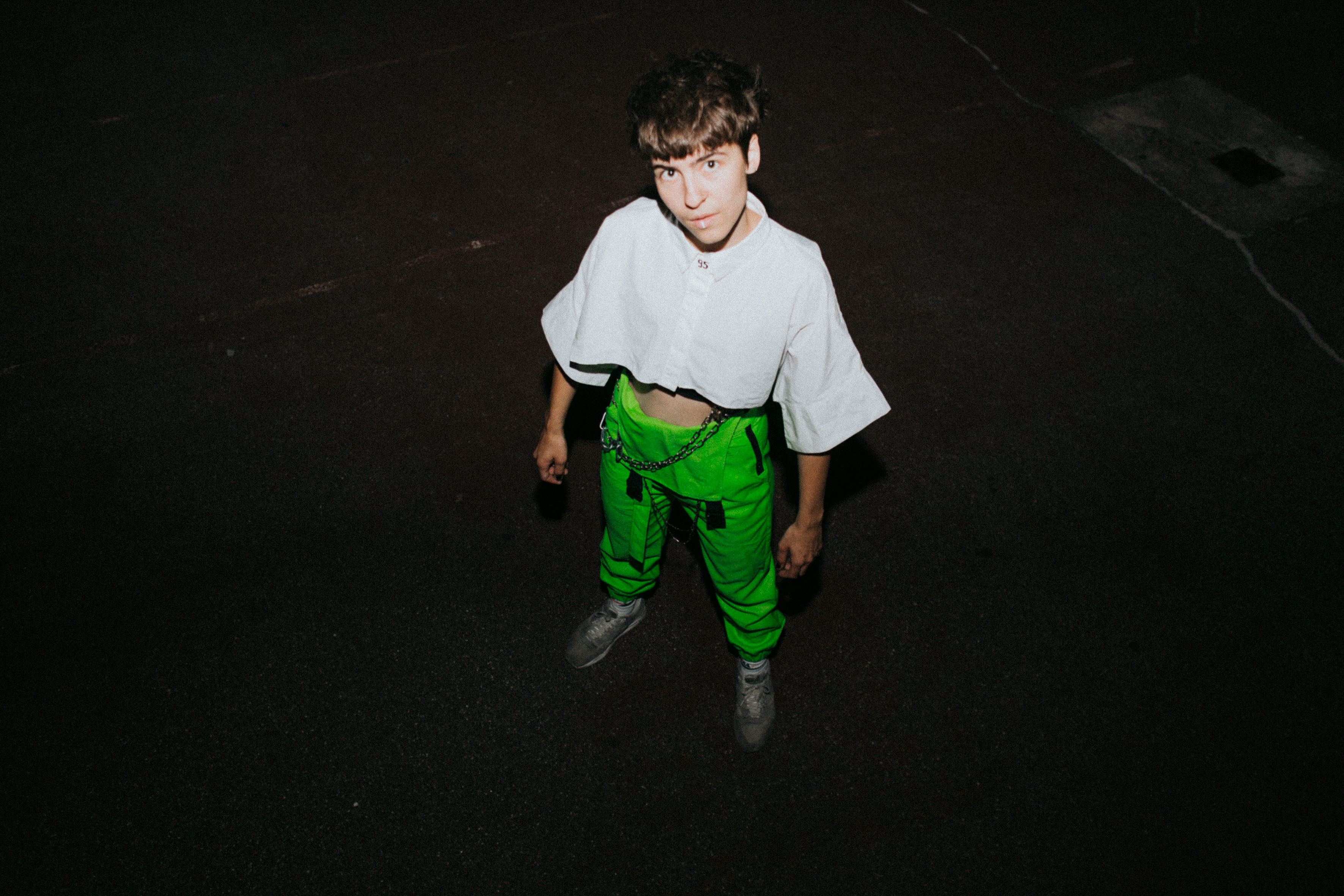 Performing as Kerosin95, Kathrin Kolleritsch will heat up the disco in the Volkshalle at 1 am with political rap. In this interview she speaks about invisible identities and an antithesis to tough gangsta rap.
Performing as Kerosin95, Kathrin Kolleritsch will heat up the disco in the Volkshalle at 1 am with political rap. In this interview she speaks about invisible identities and an antithesis to tough gangsta rap.
When Kathrin Kolleritsch, alias Kerosin95, enters the stage, nobody stands still anymore. Energetically she jumps around, yet her voice – which can also be heard in her new collaboration “My Ugly Clementine” together with Mira Lu Kovacs (Schmieds Puls), Sophie Lindinger (Leyya) and Nastasja Ronck (Lucid Kid) – is not suffering from that movement. For Kerosin is “Nicht immer taktvoll, doch stets im Rhythmus des Metronoms” (a German play on words meaning: “not always discreet but in the rhythm of the metronome”), which is how she describes herself in her Single “Außen hart innen flauschig”.
Your texts are playful and funny, at the same time you never leave out a certain sense of social criticism. How does that go together? For me, social criticism goes hand in hand with humour, irony and more serious moments. Playing with it in my lyrics is a lot of fun for me. And this is a way I can be critical – towards myself or the world. I could definitely never do without my “Schmäh”, my wit.
You said in another interview that “anger” is one of the driving forces behind Kerosin95. What makes you angry right now?
Yes, anger is one of the driving forces for art. But not the only one. Many things make me angry: Current power relations, some people who do not question their privileges or simply ignore them, and the patriarchy – always. I am also angry at my self sometimes, my habits and racisms, which are deeply rooted. But this anger is very constructive for me. It helps me to understand the world and myself and to do something about it. Thereby I am not less angry but I am merging it into texts. Expressing myself through those and being loud gives me the feeling that I can actually change something within myself.
With rappers like Ebow, Keke and EsRap, the Austrian rap scene has also changed in terms of gender. You do not see yourself as female. How visible are queer* identities in the music scene?
Some things are changing in Austria but queer* identities are still very underrepresented in the musical landscape. Festivals, line-ups or nominations for the Amadeus (Austrian music award) are still nominated by white and cis-males. That is a pity and a bit embarassing because there are so many great artists* which are not seen or heard! Making queer* identities visible is very important and essential for everyone. And it shouldn’t just be the task of the people who are affected by it themselves.
Interview: Katharina Kropshofer
Photo: Hannah Fasching
P.S: You can find the complete interview in the ball magazine, which will be handed out at the end of the ballnight to all visitors and will also be available for download the next morning.